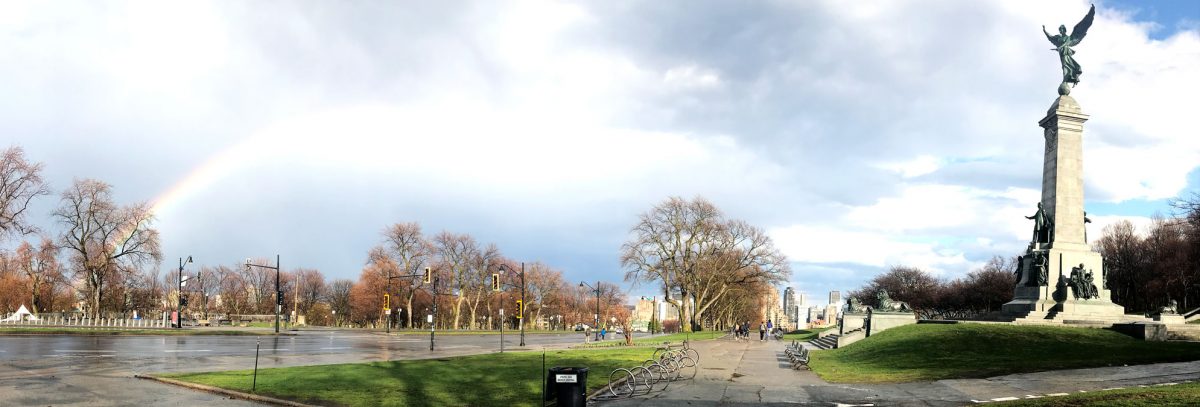The month of March 2020 was fairly typical, for me. As current Managing Director of the non-profit arts and heritage organization ARCMTL, I was getting into the thick of a new year of programming with our team.
Several winter and spring activities such as literary readings, conference presentations, and our Grande print fair and festival were in various stages of production or promotion.
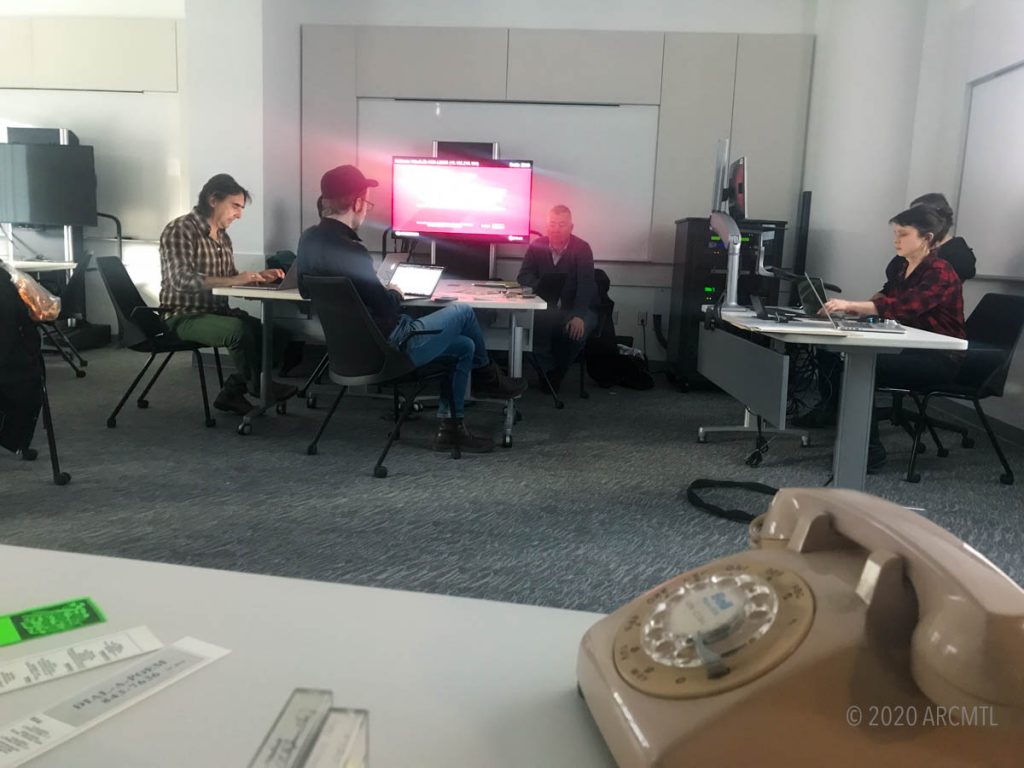
One of the year’s first activities was a Wiki Edit-A-Thon on March 5 at Concordia University, on the topic of the 1980s Dial-A-Poem Montreal project that we’d just archived in 2019 in partnership with Concordia’s Spokenweb literary research initiative.
A few days later, on Saturday, March 7, I attended the sold-out premiere of the documentary film Jukebox — — which ARCMTL had collaborated on, and which I hyped on the radio during our weekly show in the studios of CKUT the day before.
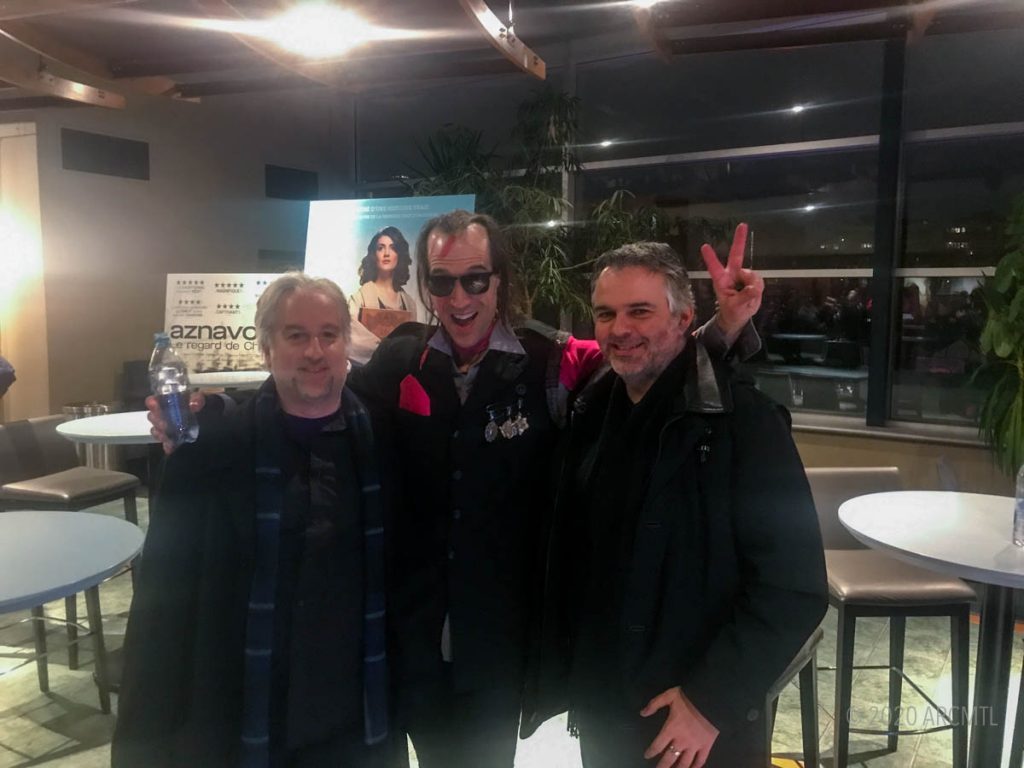
From Sunday to Tuesday, March 8 to 10, I attended the literary festival Dans Ta Tête every evening at La Vitrola on St-Laurent a few steps from my apartment on Clark St. I hadn’t planned to go every night, but it was particularly epic and full of entertaining performances, as well as many friends and acquaintances of mine in the crowd and on the stage.
On March 11, I spent the afternoon in a room at the Palais des Congrès with a few dozen colleagues for a meeting about the Salon du Livre de Montreal. I was by then convinced that a contingency plan for their fall book fair would be needed, and took notes all through the meeting about that. It was way too soon, with the WHO declaration of a global pandemic coming out that very afternoon, for this topic to be added to the agenda.
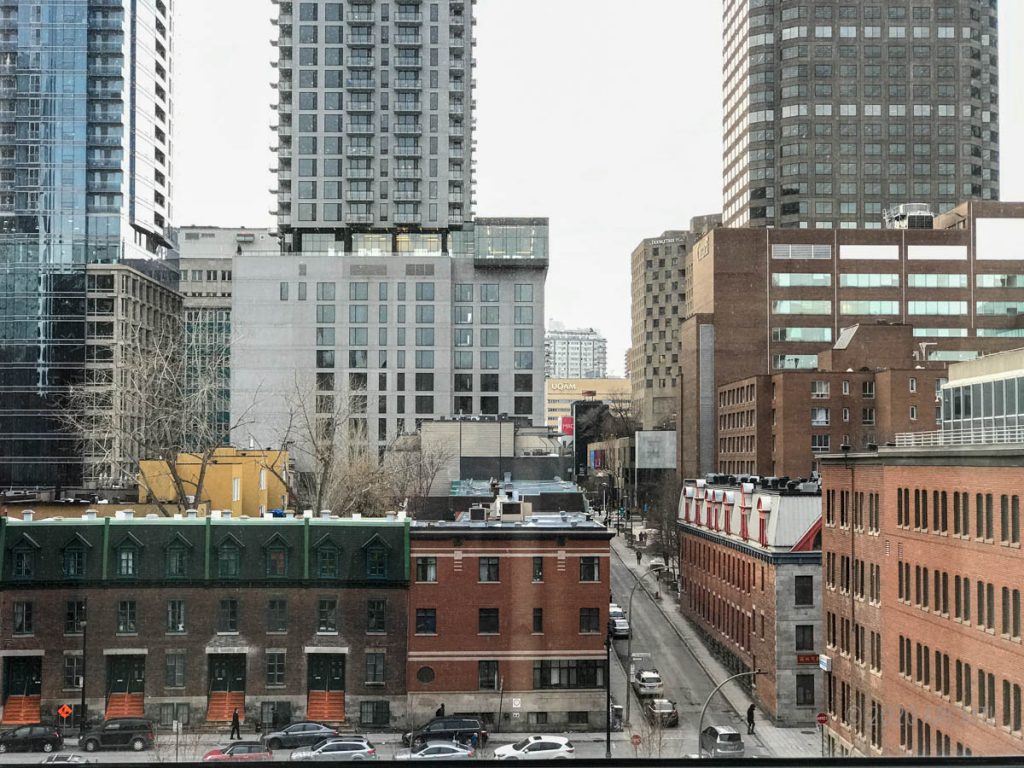
Despite very generous catered snacks and an open bar after the meeting in a new area of the convention centre that had also just recently asked us about possibly installing one of our Distroboto art vending machines, I didn’t stay long. From the vast windows of the convention centre, the city looked a fair bit quieter than it usually was during a Thursday rush hour.
That evening, ARCMTL hosted our annual Expozine Awards Gala, on the second floor of Café Cléopatra (the cabaret space of this longtime strip bar.) I was able to get a meal in Chinatown between the Palais and Cleopatra, and was happy to encourage the mostly empty restaurant given that some people seemed to think at the time that Chinese restaurants were risky places for catching Covid-19—ridiculous!
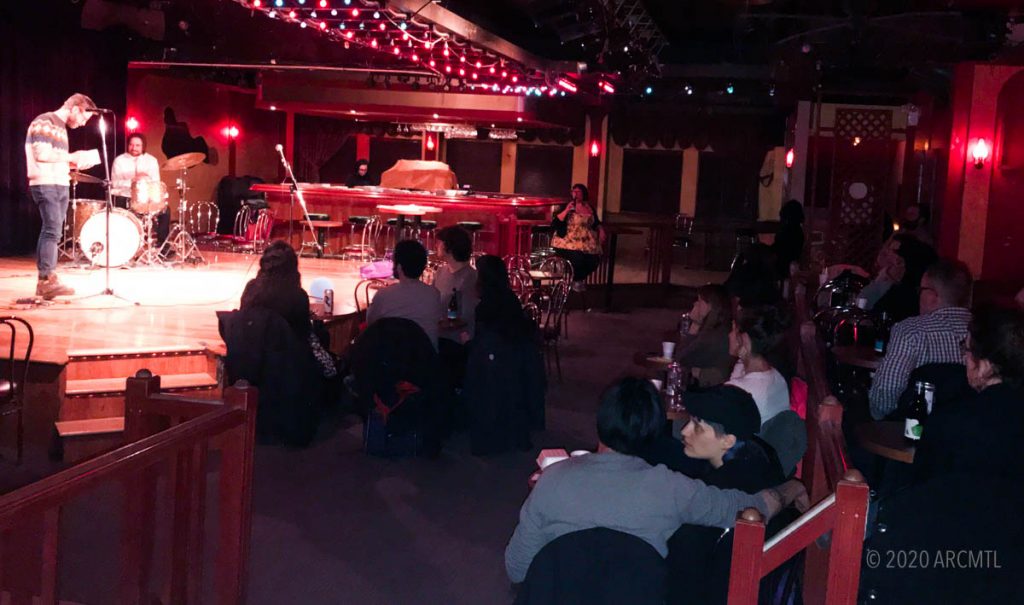
Our event was reasonably attended, but not overly crowded. People spoke of Tom Hanks testing positive that day, and the chance that there may be some upcoming events cancelled, until whatever this situation was got figured out. At the last minute before the event, we had decided to put individual portions of nuts and snacks in plastic champagne cups on the tables rather than in common bowls, just in case the virus was already circulating.
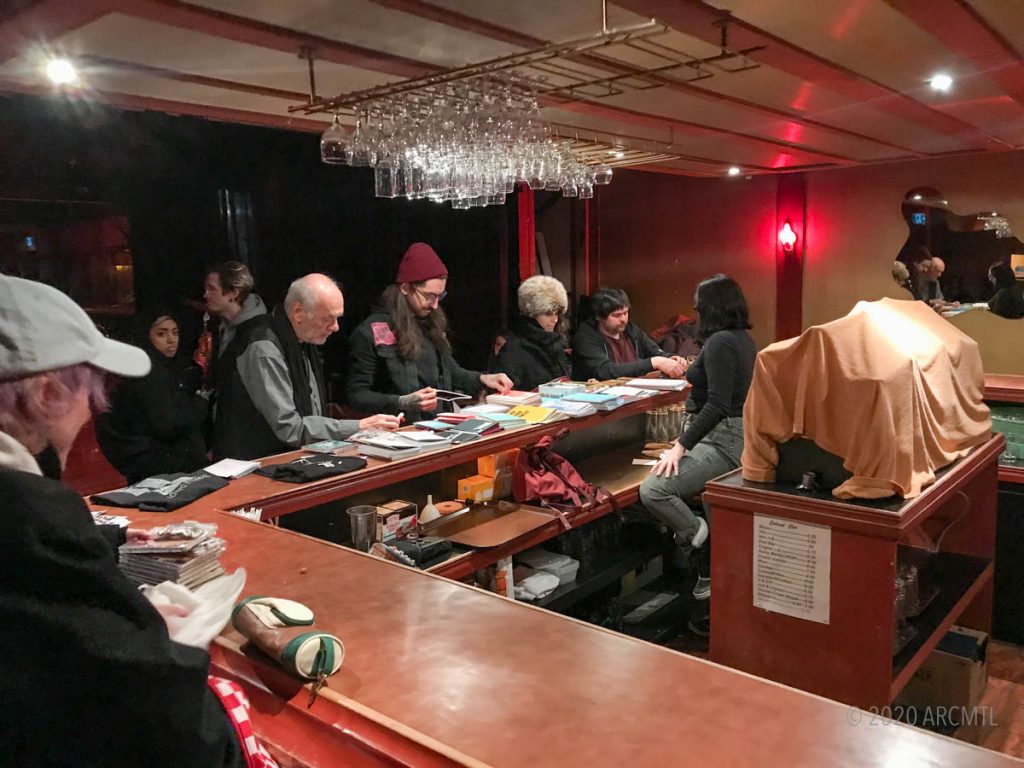
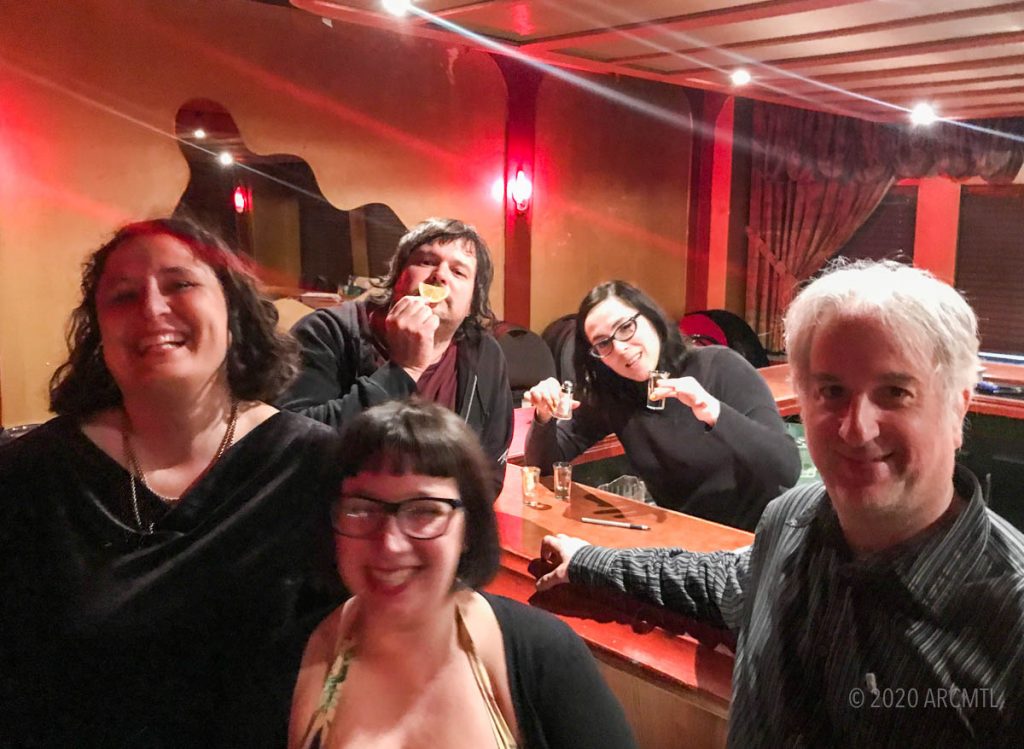
On March 12, I went from a multi-gallery opening soiree on de Gaspé to a magazine launch for Post-Punk Art Now, which I contributed an article to, at the second location of the bookstore Le Port de Tête on Mont-Royal. I remarked on whether the traditional wine and cheese spread was still safe, but snacked on some carrots and ranch dip anyway. It was unreasonably crowded for such a small space, so I didn’t stay more than fifteen minutes.
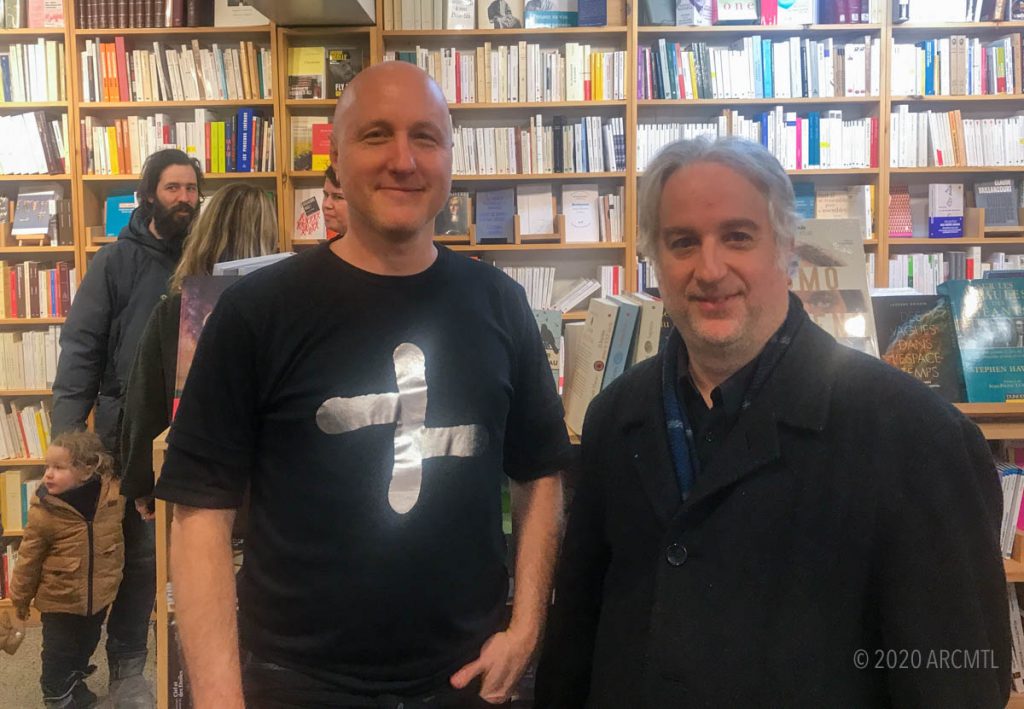
My next stop was a meeting and pot-luck dinner over at the Alternatives Centre on Park at Pine Ave. The occasion was the visit of colleagues from Vermont that were working on books for the publisher that’s based in that centre. I sat and spoke at length next to the Vermonter who tested positive for Covid a few days later, but nobody had any idea at the time that it was already circulating.
I went back to La Vitrola later that evening for another packed reading as part of Dans Ta Tête.
On Friday the 13 of March, 2020, the growing stress over the pandemic was palpable. People were desperate to get tested, thermometers were sold out at pharmacies and health phone lines were inundated with people wondering if they had Covid symptoms. I hosted our weekly radio show for the last time at the studios of CKUT on the McGill Campus, playing a set of doom-and-gloom hard rock and obscure cover versions of Fever. I would normally burst into the studio with my heavy bags of vinyl records and start cueing up a record as soon as the prior host finished introducing their last song. This time, I waited until they had left before going into the small studio, pulling out Lysol wipes to wipe down all the knobs, the microphone and switches, leaving behind a ridiculous amount of used wipes. During my show, I regularly announced a special phone number for Covid testing that the government had set up to free up the regular health lines. I implored listeners to not worry about getting tested if they had not travelled nor been in contact with anyone who’d recently travelled—there weren’t many tests available and it was important they be used only for high-risk individuals.
After my radio show, my routine brought me to McKibbin’s pub on the Main near Prince-Arthur, just down the hill from the radio station. The happy hour crowd was nowhere to be found there– or anywhere else on the Main; nor was the usual table of bowls of various snacks, nor the usual daily newspapers in the corner of the bar. I washed my hands as soon as I picked my table, and went back to wash them after handling the menu and a couple more times afterwards.
The lack of usual crowd made it easy to keep several empty chairs or tables between clients. I asked the waitress whether it would be possible to continue with such reduced business if this virus began spreading in Montreal—she sort of shrugged and said she hoped they would just shut it down if this continued, waving to the empty bar. With most of her wages coming from tips, I could imagine what a sudden change this was.
Risk management
My experience in the risk management business — revealed at last!!
By chance, a summer job setting up a reference library catalog for the Institute for Risk Research in 1993 while studing at the University of Waterloo started a long career in risk management. More specifically, health, safety and environmental management (or HSE for short).
It was very interesting to be in this field when it was basically brand new — bit by bit, progressive laws protecting workers began to get passed in the 1970s and 1980s, and by the 1990s most major corporations were beginning to set up internal health, safety and environmental management departments to make sure they were complying with these new laws.
I had studied and worked in architecture for several years by the time I settled into a career in HSE in 1995. I was part of a tiny team tasked with developing and enforcing corporate HSE policies and procedures for a corporation that had a lot of very risky business going on — heavy industrial and mining sectors, nuclear power, hydro dams, military contracting and so on.
From the very beginning, a major part of the job was figuring out how to convince heads of divisions and company Vice-Presidents to start paying attention to safety and environmental concerns at all. They were never happy to be told to put money and resources into something that would not generate a profit back. There was an actual struggle involved in making sure this new department survived its first few years.
New laws are being passed all the time, I would explain, and if we didn’t get more responsible and become pro-active in identifying and avoiding major risks, there would be more and more severe legal and financial consequences the next time a major incident occurred.
I learned fairly quickly that proper communications were key to convincing anyone about the merits of being pro-active about safety.
The fact that I considered myself a “writer” since my teenage years writing for local music magazines and the High School Newspaper very much helped me get rolling in this nascent career. The right choice of words, turn of phrase or friendly tone can make all the difference when communicating risks or safety requirements to workers, management or the general public.
Fast forward from the mid 1990s to the year 2020, after more than two decades of experience in safety, preparedness and crisis management, I’m flabbergasted at how badly the management of the COVID-19 pandemic has been. It’s enough to make me want to re-start my blog! So here we go! Welcome!
